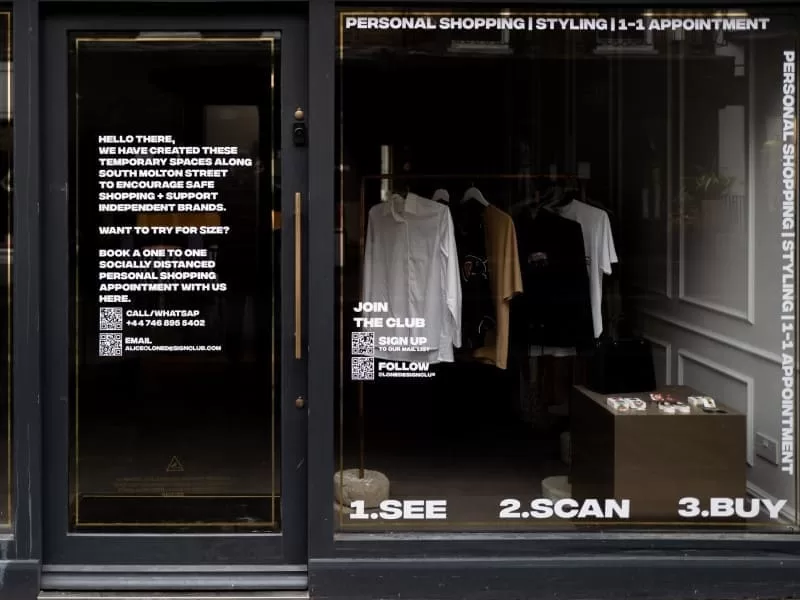
United Kingdom: the leading exponent of e-commerce
The democratization of access to technology on an international level has played a crucial role in online stores (e-commerce) gaining ground on over time (and, at times, cornering) traditional sales models in brick-and-mortar stores and large retailers.
In fact, Internet is within the reach of more than 96% of British citizens. Currently, online sales platforms have become safer and more efficient. Moreover, they enjoy great popularity among European consumers, with the United Kingdom being the most representative case.
The role of professional translation in this new way of understanding commerce is reflected in the need to translate websites into other languages. Precisely, this effort helps localize the online store’s content and bring it closer to the business’s target audience.
What is the e-commerce?
E-commerce or online commerce is a new way of understanding buying and selling operations between businesses or individuals. These transactions are carried out through a website where an online virtual store is hosted.
The process is simple:
- User browses the catalog.
- They make a purchase and pay by cash on delivery, credit card, PayPal, or cryptocurrencies (among other methods).
- The company managing the e-commerce sends the products to the specified destination.
Easy, right? If it weren’t so easy, this business model wouldn’t be so successful. No one doubts the power of popular e-commerce platforms like Amazon, eBay, Aliexpress, or Zalando today. Even many businesses that have always operated through physical stores have jumped on the online shopping bandwagon to provide better service to users. Some examples are Media Markt, Decathlon o El Corte Inglés.
Moreover, the COVID-19 pandemic played a crucial role in the growth of e-commerce. Due to the impossibility or risk of going to stores or shopping centres, online shops became the preferred option for many users.

Photo by rupixen.com on Unsplash
Why is the United Kingdom a European leader in e-commerce businesses?
The biggest “enemy” of e-commerce is the user themselves, or rather their reluctance or scepticism toward this distribution model. However, the data shows that UK citizens do not follow this pattern.
In 2020, 9 out of 10 British aged between 16 and 74 made a purchase online. Thanks to this simple statistic, the United Kingdom leads the European e-commerce market.
Moreover, the residents of this country can boast a technological adoption rate of over 58% above the European average, as 3 out of 4 British have basic digital skills. In fact, 64% of United Kingdom citizens claim they prefer to make their purchases online through their smartphones.
However, it’s important to highlight that all of these data are prior to Brexit (the United Kingdom’s departure from the European Union). Therefore, e-commerce businesses that decide to operate and invest in the United Kingdom will need to readapt their mechanisms and procedures to an export system for goods, rather than intra-community trade.
The importance of a professional translator in e-commerce businesses.
In another article about website translation, we emphasize that it is essential to translate a website into the languages spoken in the areas where a business wishes to establish itself. By adapting the language of the online store to that of the target audience, you can capture their attention and provide a great user experience, which is essential for any business based in the digital world
In addition, in import and export businesses related to foreign trade, there is a considerable flow of documents related to the logistics and the dispatch of goods: packing lists, commercial invoices, customs declarations (DUAs), or bills of lading, among others.
The work of the translator or translation agency includes a complete localization service, which not only covers the website itself but also the translation of the product listings for the items being sold. These product listings en up appearing in Google search results, so they also need to be translated into several languages.
If the mentioned international translator also has the necessary knowledge about foreign trade, the ideal profile is achieved to tackle these commercial translation projects. A translator who collaborates with an agency like Sanscrit.
Do you need an SEO translation near Barcelona?
Do you need a translator to localize the content of your online store near to Barcelona? Are you looking for a technical translator to translate your e-commerce content taking into account the keywords of your choice? Contact us through the following questionnaire and we will send you your budget for the professional translation, as soon as possible, without compromise.


No Comments